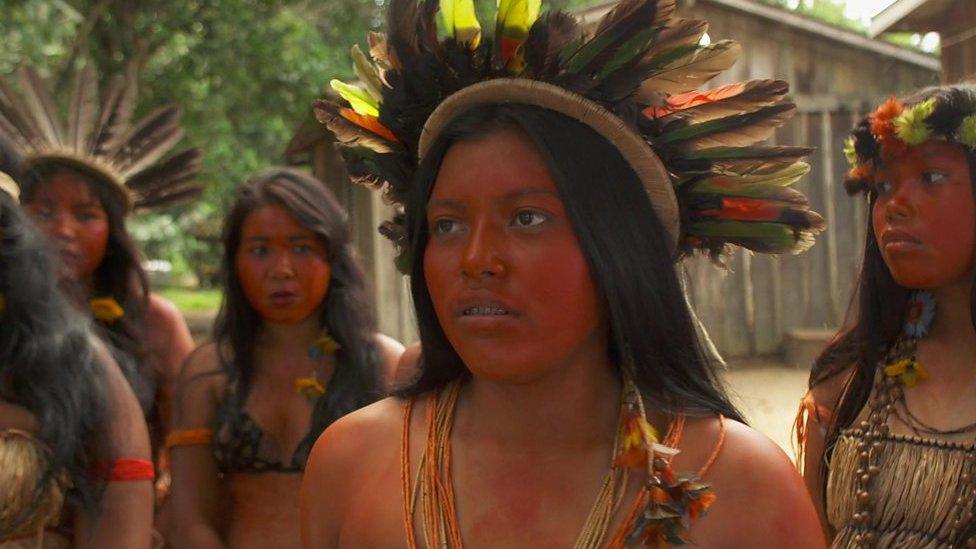Amazon: What does Brazil's new president mean for the rainforest?
- Published
Why an election in Brazil could help protect the Amazon
Environmental campaigners are hopeful of more protection for the Amazon rainforest after a change of government in Brazil.
Luiz Inácio da Silva - known as Lula - has been declared the winner of the Presidential elections there and is the county's new leader.
He defeated Jair Bolsonaro, who's been President since 2019.
Lula was also a familiar face to voters, having been president before, from 2003 to 2010 but lost power in part because of claims about corruption and allegations that he hadn't been following the rules.
Brazil is the largest country in South America and the fifth-largest nation by area in the world, home to over 214 million people.
This was an important election, not only for the Brazilian nation, but also for the rest of the world because the result is likely to have a big impact on the future of the Amazon rainforest and the global fight against climate change.
But voters will now be waiting to see if they can trust Lula to follow through on the promises he has made so far, particularly when it comes to his "aim for zero deforestation".
Why is the Amazon important?
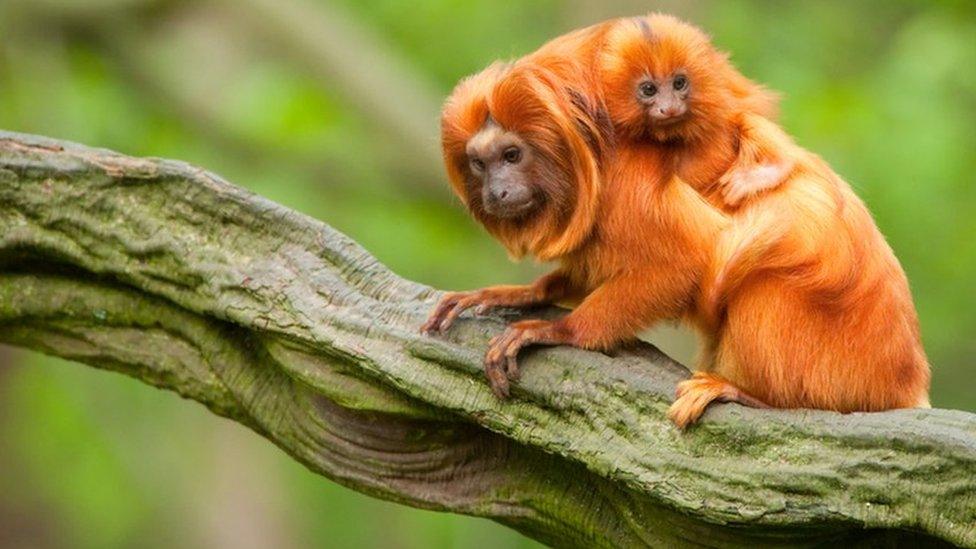
The Golden Lion Tamarin is an endangered species that is native to the Amazon rainforests of Brazil
The Amazon rainforest is the largest tropical rainforest in the world.
It is spread across nine countries in South America - Brazil, Peru, Colombia, Bolivia, Ecuador, French Guiana, Guyana, Suriname and Venezuela - but the majority of it, almost 60%, is in Brazil.
The huge rainforest is home to thousands of plants and wildlife species, many of which are only found in that part of the world.
It is also home to various species that are endangered and whose populations are under threat.
According to the conservation organisation World Wildlife Fund (WWF), the total known number of different species in the rainforest includes: 427 mammals, 1300 birds, 378 reptiles, over 400 amphibians and between 2,500 - 3,000 freshwater fish.
The Amazon is also very important in the world's fight against climate change. Scientists often call the rainforest the "lungs of the planet" because of the role it plays in absorbing carbon dioxide and producing oxygen.
The Amazon has been under increasing pressure recently with Brazil setting a new deforestation record earlier this year for the amount of trees cut down in the rainforest in one month.
Trees are important for our environment for many reasons: they absorb carbon, fight flooding, reduce pollution and help wildlife.
Trees and plants take in carbon dioxide and release oxygen. When they're cut down, burned or left to rot, the carbon dioxide they store is released into the air and this contributes to something called global warming.
This happens when greenhouse gases trap heat from the Sun, causing the Earth's surface to get hotter.
Deforestation is when forests are cleared for farmland, and the expansion of roads and cities, hunting of species and climate change - and all this has a negative impact on animal and plant species.
What's life like for kids in the Amazon?
What has Lula said about the Amazon?
Both candidates have very different opinions on how Brazil should be run, including the future of the Amazon rainforest.
Luiz Inácio Lula da Silva has said he wants to increase protection measures for the Amazon and has promised to "aim for zero deforestation".
The Amazon rainforest is more than 24 times the size of the UK
When he was in power previously his government managed to lower deforestation by 83% so people will be expecting him to match this at least.
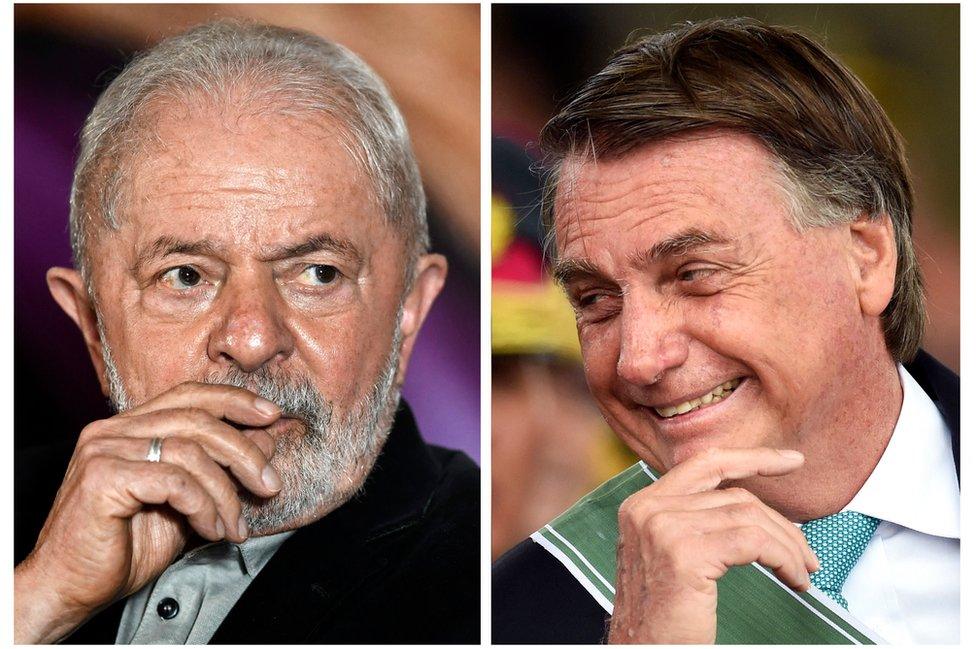
Luiz Inácio Lula da Silva and current president Jair Bolsonaro were polar opposite when it came to their views
He has said: "Instead of being world leaders in deforestation, we want to be world champions in facing up to the climate crisis and in socio-environmental development.
"That way we will have healthy food on our plates, clean air to breathe and water to drink and lots of quality jobs with green investment."
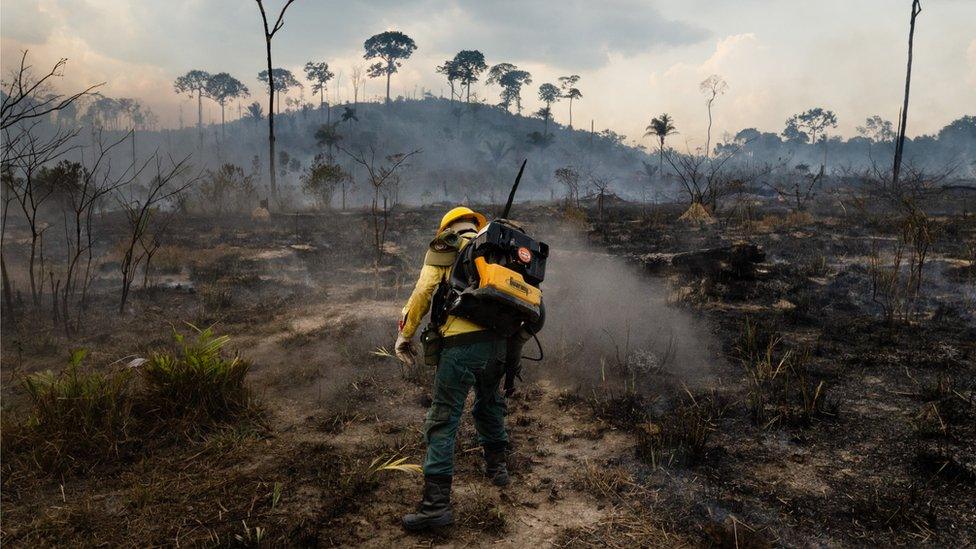
Often fires are started in the Amazon to clear land so it can be used for farming
Jair Bolsonaro, has been accused of weakening environmental protection in Brazil.
According to government data from the country, deforestation increased by 75% over the years since he became President.
But President Bolsonaro argued that allowing more farming and mining in the Amazon would reduce poverty in the region as it gives poorer people more opportunities.
What is likely to happen next?
Txai, environment activist from Brazil spoke against deforestation at COP26 - but President Bolsanaro accused her and other indigenous groups of attacking Brazil
Deforestation has increased every year since Bolsonaro took power, so Lula's plan will be to quickly end Bolsonaro's current policies that allowed ranchers and loggers to take advantage of the Amazon's natural resources.
A new law proposed by Bolsanaro to allow mining on indigenous areas won't now happen, but many will be looking to see what can be done to stop illegal mining from continuing to take place.
Lula has also said he is "open to international co-operation to protect the Amazon" but many people will be watching to see if he will follow through on what he has promised.
- Published20 November 2021
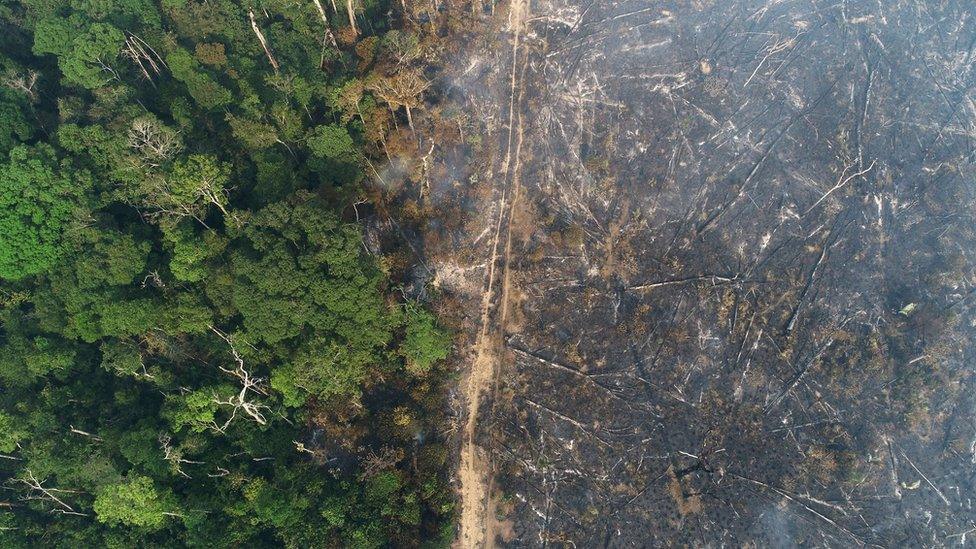
- Published24 February 2020
